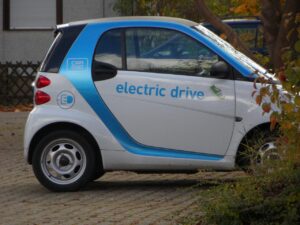
Home / EV Charging News / Electric Cars and Equity in Transportation: Fostering Inclusivity and Sustainability
Electric vehicles (EVs) are not just a technological advancement; they also hold the potential to address pressing issues of equity in transportation. This article delves into how electric cars can contribute to more equitable transportation options, with a particular focus on reducing the environmental impact of commuting for underserved communities.
Underserved communities, often disproportionately affected by transportation-related pollution and limited access to reliable transportation options, face a multitude of challenges in their daily lives. These challenges can include longer commute times, higher transportation costs, and health issues associated with poor air quality.
Electric vehicles produce zero tailpipe emissions, reducing the air pollution that disproportionately affects marginalized communities. As electric cars become more prevalent, the overall air quality in these areas is expected to improve, leading to better health outcomes for residents.
EVs are more energy-efficient and have lower operating costs than traditional internal combustion engine vehicles. This translates to cost savings that can benefit individuals with limited financial resources.
Increasing the availability of charging infrastructure, especially in underserved areas, is crucial. This ensures that residents have convenient access to charging facilities, making EV adoption a practical choice.
Government programs and incentives can play a pivotal role in promoting the installation of charging stations in underserved neighborhoods, further reducing the barrier to EV adoption.
The electric vehicle industry offers opportunities for job creation, from manufacturing to maintenance and support services. These employment opportunities can benefit local communities and provide stable income for residents.
EVs tend to have lower fuel and maintenance costs compared to traditional vehicles, which can be a significant financial relief for underserved populations.
While electric vehicles hold great promise for addressing transportation equity, several challenges and considerations need to be addressed:
The upfront cost of electric vehicles remains a barrier for many low-income individuals. Government incentives and subsidies are essential to make EVs more accessible.
Ensuring an equitable distribution of charging stations is crucial to avoid creating transportation disparities within underserved communities.
Efforts must be made to educate residents about the benefits of electric cars and how to access available incentives and resources.
In conclusion, the integration of electric vehicles into our transportation landscape offers a promising avenue to address the critical issue of transportation equity. Underserved communities, which have long endured the burden of transportation-related pollution and limited access to reliable options, stand to benefit significantly from the adoption of electric cars.
The reduction of harmful emissions from EVs, coupled with their lower operating costs, directly contributes to improving the quality of life in these communities. Cleaner air, lower transportation expenses, and job opportunities in the growing electric vehicle industry can help alleviate some of the challenges faced by underserved populations.
However, realizing the full potential of electric cars as a tool for enhancing transportation equity requires concerted efforts from multiple stakeholders. Governments should continue to incentivize the adoption of electric vehicles, making them more affordable for low-income individuals. The expansion of charging infrastructure in underserved areas is essential to ensure that residents can conveniently access the benefits of electric transportation. Additionally, education and outreach programs must be implemented to raise awareness about EV advantages and available resources.
In this journey towards a more equitable and sustainable transportation system, the role of electric vehicles is crucial. As we work together to address transportation disparities, electric cars offer a compelling solution that can bring us closer to a future where everyone, regardless of their socioeconomic status, can enjoy the benefits of cleaner, more affordable, and environmentally responsible transportation. The road to transportation equity is long, but with electric vehicles, we have a powerful vehicle for change.



